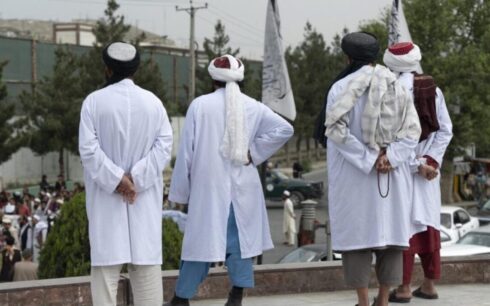Today marks the 50th anniversary of the establishment of the first republic government in Afghanistan, following the overthrow of the monarchy by Mohammad Daud Khan through a military coup in July 1973.
Since that historic coup, Afghanistan has experienced significant changes and consequences. The question arises: what is the current situation in Afghanistan and what were the lasting effects of that coup on the country?
Dubbed the “white coup” in Afghan history, Mohammad Daud Khan seized power on July 17, 1973, while King Zahir Shah was visiting Italy.
“The republic did not endure as planned, and the military, along with the People’s Democratic Party, Sardar Mohammad Daud Khan’s former colleagues, eventually overthrew the government. Since then, the conditions in our country have worsened day by day,” said Rahmatullah Andar, a military expert.
Thus, a two-century-old monarchy came to an end, and Daud Khan became the architect of the first republic in Afghanistan.
However, political analyst Akhtar Mohammad Rasikh highlighted the challenges faced by the nascent republic, stating, “Regional adversaries did not passively accept this new system; they formed military groups and actively worked towards its downfall.”
Mohammad Daud Khan’s presidency lasted for only five years. His demise remains a subject of investigation as former President Hamid Karzai established a commission to probe the circumstances surrounding Daud Khan’s death.
The commission subsequently revealed that Daud Khan, along with 18 members of his family, was killed during the coup d’état led by the People’s Democratic Party of Afghanistan on the 8th of Sawr 1357 (21 April 2978) in the presidential palace in Kabul.
Daud Khan’s body, along with those of his family members, was later discovered in a mass grave in the eastern suburbs of Kabul.
Former military officer Sarwar Niazi commented on the tumultuous aftermath, stating, “Following the Haft Sawr coup (1973), numerous subsequent coups and armed takeovers ensued, resulting in a prolonged period of conflict spanning over 45 years for the people of Afghanistan.”
Since Daud Khan’s death, ten different figures, including Noor Muhammad Taraki, Hafizullah Amin, Babrak Karmal, Dr. Najibullah, Sibghatullah Mujadadi, Burhanuddin Rabbani, Mullah Mohammad Omar, Hamid Karzai, Mohammad Ashraf Ghani, and currently Mullah Hibatullah, have successively assumed power in Afghanistan.
Over the course of these fifty years, Afghanistan has been engulfed in numerous wars, including a devastating civil war. Today, the country finds itself under the control of the Taliban, symbolized by the white flag, which has cast a shadow over the lives of girls and women, signaling darker days ahead.





